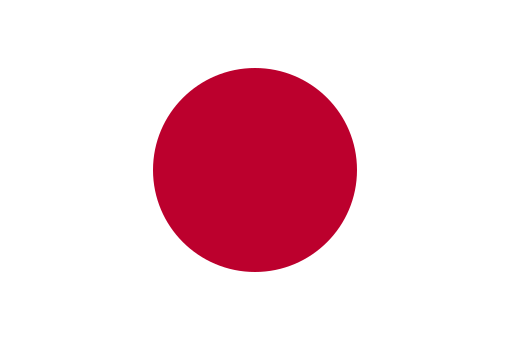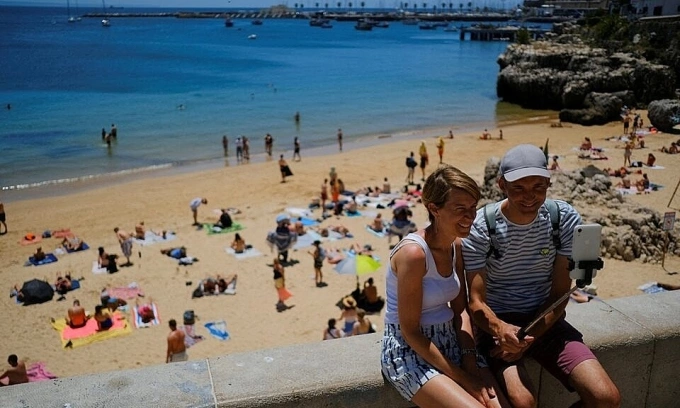筛选:
等级:
来源:
话题:
当天最新动态,24小时持续更新。来自 CNN、BBC、VOA、Inside Science 等官方新闻来源...
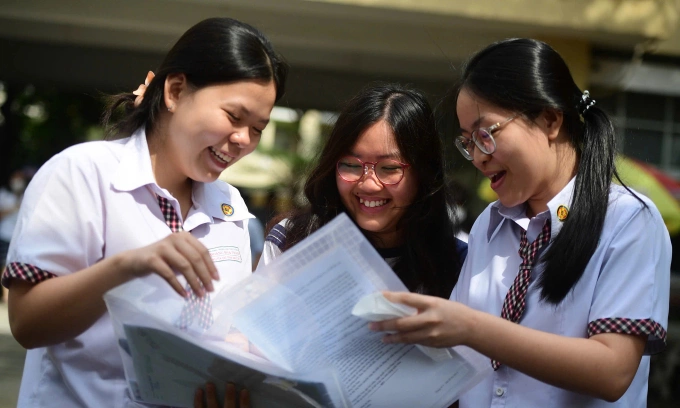 2 分钟
2 分钟 Hanoi ends Ho Chi Minh City's 8-year reign in high school English exam
Hanoi has surpassed Ho Chi Minh City to rank first in Vietnam's 2025 national high school graduation English exam for the first time in eight years. Of nearly 352,000 test-takers, the national average dropped to 5.38/10 from 5.51 last year. Only 141 students scored a perfect 10, compared to 565 in 2024, while 28 scored 1 or below.
Hanoi led with an average score of 5.78, ahead of Ho Chi Minh City (grouped with Binh Duong and Ba Ria‑Vung Tau) at 5.66, and Quang Ninh at 5.46. Hanoi also had the most perfect scores (56), followed by Ho Chi Minh City and Bac Ninh. Other high-ranking provinces included Dien Bien, Phu Tho, Hai Phong, Nghe An, Ninh Binh, Ha Tinh, and Thanh Hoa.
Experts note these rankings may be skewed by differing candidate numbers—HCMC had over 61,900 candidates, Hanoi nearly 59,600, while Dien Bien had only 554.
The exam, held June 26–27, featured 40 multiple-choice questions in 50 minutes. Students and teachers alike said many items were at B2–C2 levels, well above the B1 target, making the test difficult even for those with IELTS 7.0–7.5. Results will be used for university admissions, with regrade requests due July 25, application adjustments by July 28, and final scores released August 22.
来源: TODAII [ 6754] 2025-07-19 19:33:06
6754] 2025-07-19 19:33:06
 1 分钟
1 分钟 Thailand eyes tourists from Southeast Asia, Middle East to make up for Chinese tourists
Thailand is adjusting its tourism strategy to counter weaker Chinese arrivals by targeting growth from the Middle East and Southeast Asia. Tourism Authority of Thailand (TAT) governor Thapanee Kiatpaibool said Middle Eastern markets already show 17–18% growth, and more flights and arrivals from the region are being pursued.
TAT cut its 2025 foreign arrival forecast from 40 million to 35 million, expecting total tourism revenue of about 2.8 trillion THB (US$86 billion), with 1.6 trillion THB from foreign visitors. China sent only 2.3 million travelers in the first half of 2025, down from 3.4 million a year earlier. To offset this decline, TAT is also focusing on Oceania and Southeast Asia.
Looking ahead to 2026, Thailand plans a “value over volume” strategy to raise revenue by 7% while attracting higher-spending, lower‑impact tourists. Tourism contributes about 12% of Thailand's GDP, but as of July 6, 2025, arrivals were down 5.1% year on year at 17.2 million, generating 794.7 billion THB.
来源: TODAII [ 2541] 2025-07-19 19:32:57
2541] 2025-07-19 19:32:57
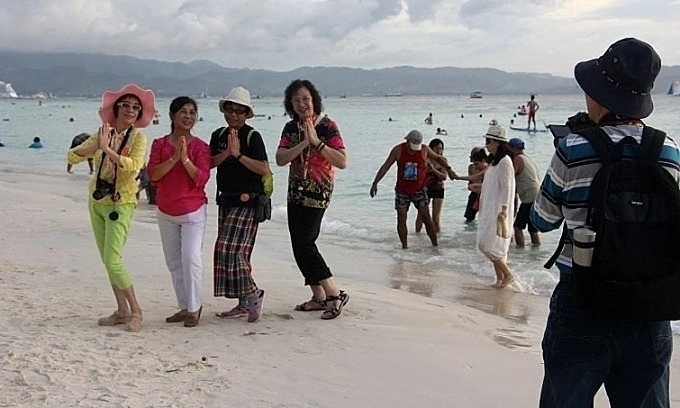 1 分钟
1 分钟 Philippines removed from list as world's most dangerous country
HelloSafe, a Canada‑based travel insurance comparison firm, has apologized and pulled its “2025 Safety Index” after widespread backlash over ranking the Philippines as the world's most dangerous country. In a July 15 statement reported by the South China Morning Post, the firm said it had suspended the index and would audit its methodology. It expressed regret for the “misunderstanding and negative perception” caused, stressing it never intended to defame any nation.
The index, released in June, rated countries from 0 (safest) to 100 (most dangerous) using 35 criteria in five categories: natural disasters, societal violence, armed conflict, health infrastructure, and militarization. The Philippines scored 82.31, ahead of Colombia, Mexico, India, and Russia.
Philippine tourism officials condemned the ranking. Tourism Secretary Christina Garcia Frasco called it “based on questionable data” and said it damaged trust among travelers, noting that it did not reflect on‑the‑ground realities. Tourism stakeholders highlighted the country's strong appeal to visitors, pointing out international praise and honors such as being named Asia's Leading Beach Destination at the 2024 World Travel Awards.
来源: TODAII [ 1100] 2025-07-19 19:32:48
1100] 2025-07-19 19:32:48
 2 分钟
2 分钟 From tragedy to triumph: Vietnamese student's journey to South Korea with no arms
Nguyễn Ngọc Nhựt, a double‑amputee from Cần Thơ, has overcome years of hardship to begin a new chapter in South Korea. Twelve years after losing both arms in a construction accident at age 16, he arrived at Incheon Airport to start a preparatory year at Hanbat University, working toward a master's degree.
Nhựt's journey has been marked by resilience. After his accident, he relearned basic tasks and turned to education despite repeated setbacks. He quit school at 15 to work as a welder, but after the accident and long hospital stays, he spent years studying at a continuing education center. Initially shy and struggling academically, he pushed on, inspired by his mother's hope that he would finish high school.
His persistence paid off: in 2020 he placed third in a city math competition and entered HUTECH's marketing program in HCMC, supporting himself with scholarships and help from friends despite mental and financial struggles. A small act of kindness from a lottery vendor renewed his will to stay in the city.
A failed visa application in 2023 and multiple failed attempts at the TOPIK 4 Korean exam did not stop him. On his fifth try, he passed. Now in Seoul, Nhựt uses the stump of his right arm to practice writing Korean, determined to pursue higher education.
Friends say he stands out not for his disability, but for his courage and relentless drive to fulfill his dreams.
来源: TODAII [ 781] 2025-07-19 19:32:39
781] 2025-07-19 19:32:39
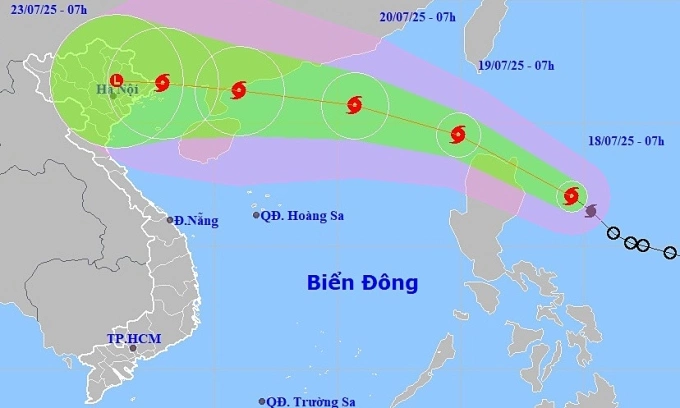 1 分钟
1 分钟 Storm Wipha to hit South China Sea, strengthen near northern Vietnam
Storm Wipha, which formed east of the Philippines on July 18 with winds around 74 kph, is forecast to enter the northern East Sea (South China Sea) on July 19 and intensify as it moves northwest at 20–25 kph. By July 20, it is expected to be roughly 590 km east of China's Leizhou Peninsula, strengthening further as it nears the coast.
Japan's Meteorological Agency projects Wipha will track west‑northwest with winds peaking near 108 kph, while Hong Kong's weather agency warns they could reach 130 kph. The northeastern South China Sea is forecast to see waves up to 5 meters high.
Vietnam's Ministry of Agriculture and Environment has ordered coastal provinces to activate evacuation plans, secure infrastructure, protect aquaculture farms and tourism areas, and keep rescue teams ready. Local officials are reinforcing dikes, safeguarding warehouses and factories, and preparing for rapid repairs.
Wipha is the region's third storm this year. Earlier, Typhoon Wutip caused deadly floods in central Vietnam, killing 11, damaging crops and homes, and disrupting flights despite never making landfall.
来源: TODAII [ 2838] 2025-07-19 19:32:30
2838] 2025-07-19 19:32:30




